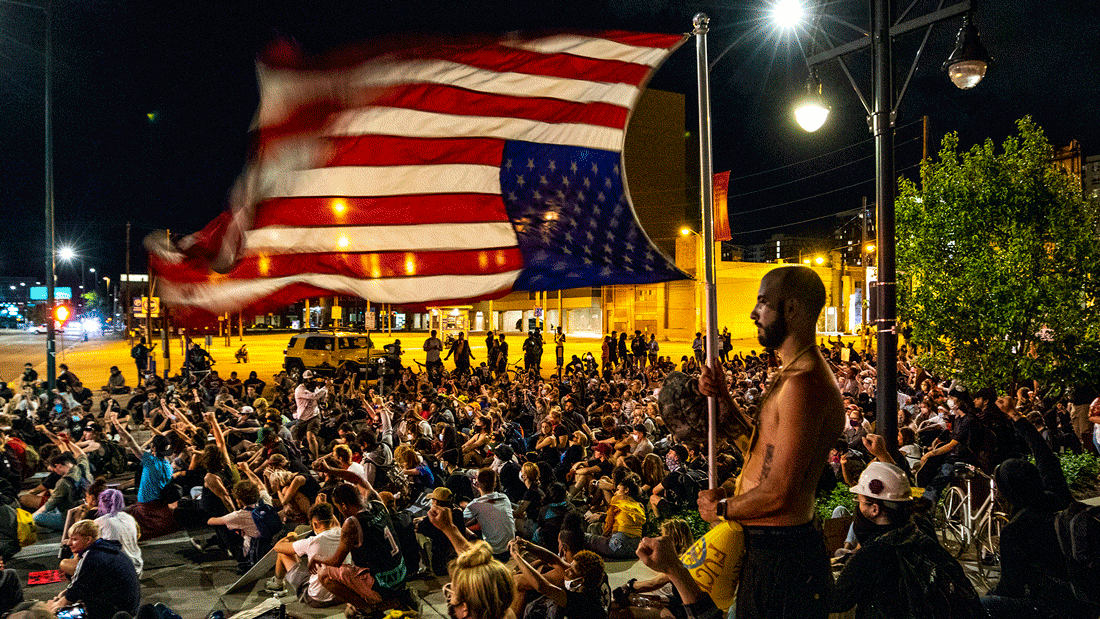It wasn't the most organized, or best publicized of the Denver marches to demand change after the death of a Minneapolis man in police custody, but it was one of the largest.
A massive crowd, stretching as long as six city blocks, moved through and around downtown Tuesday night, the sixth night of protests following the May 25 death of George Floyd. As they marched, they called out to residents to join them and it seemed to work, as hundreds became thousands.
Tashia Harper was carrying signs along with her sons, 7 and 3. She said the plight of African-American young men particularly resonates for her.
"I am raising little boys, black, young men out here," Harper said. "History has not stopped, it is still in the making...I'm trying to raise them to be more optimistic."
As the march grew, Denver Police kept their distance, occasionally serving only to block cross streets so protesters could stay together. It was a far different feeling than Friday, Saturday and Sunday when Denver Police used riot gear and SWAT units in an attempt to corral the crowds near Civic Center in what became nights of repeated clashes, vandalism and tear gas.
As the city's mandatory curfew came and went at 9 p.m., the crowd had had thinned only a little, as they moved back to the area of the State Capitol. That's where earlier in the day, days of protest turned into legislative action.
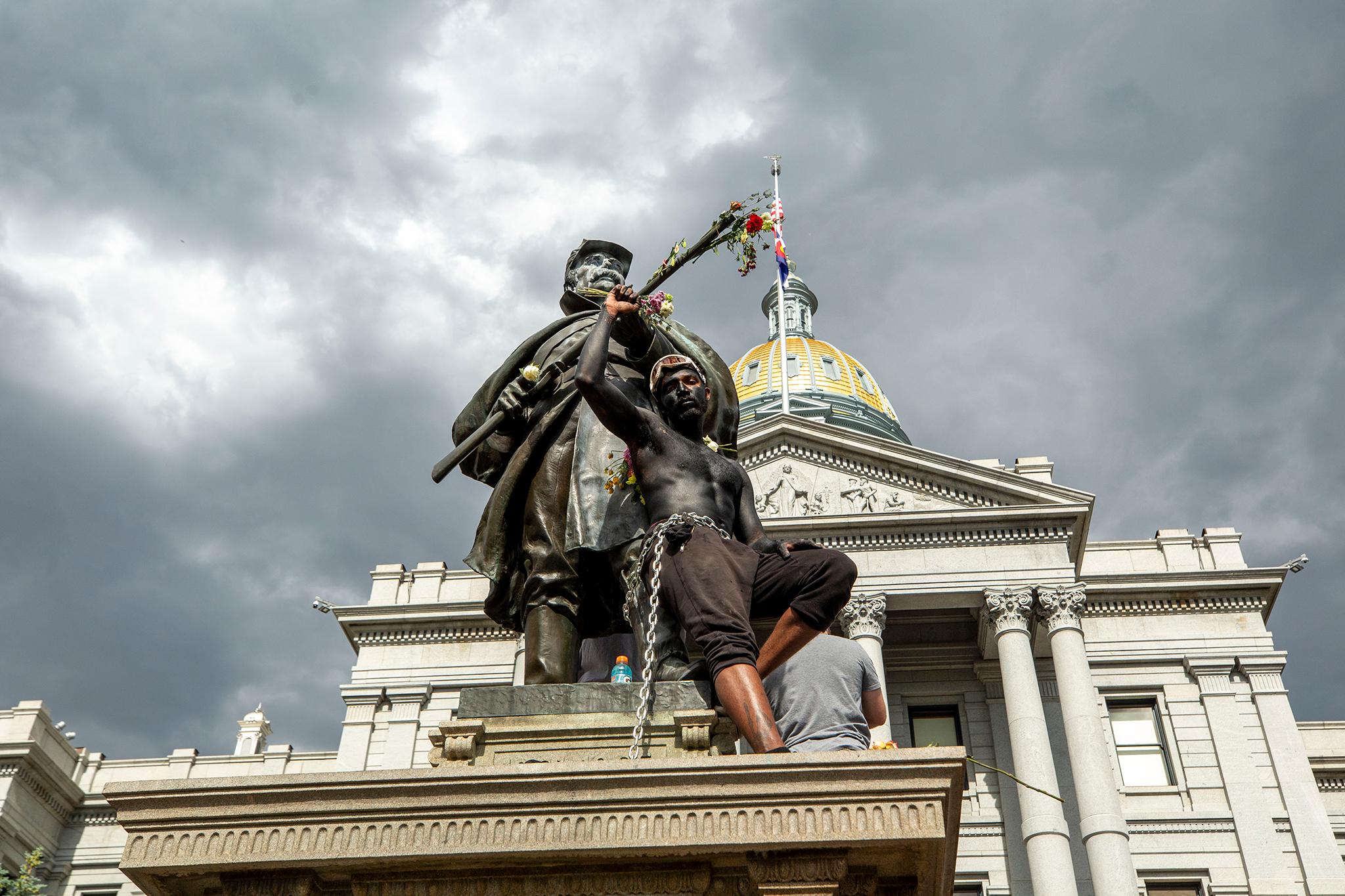
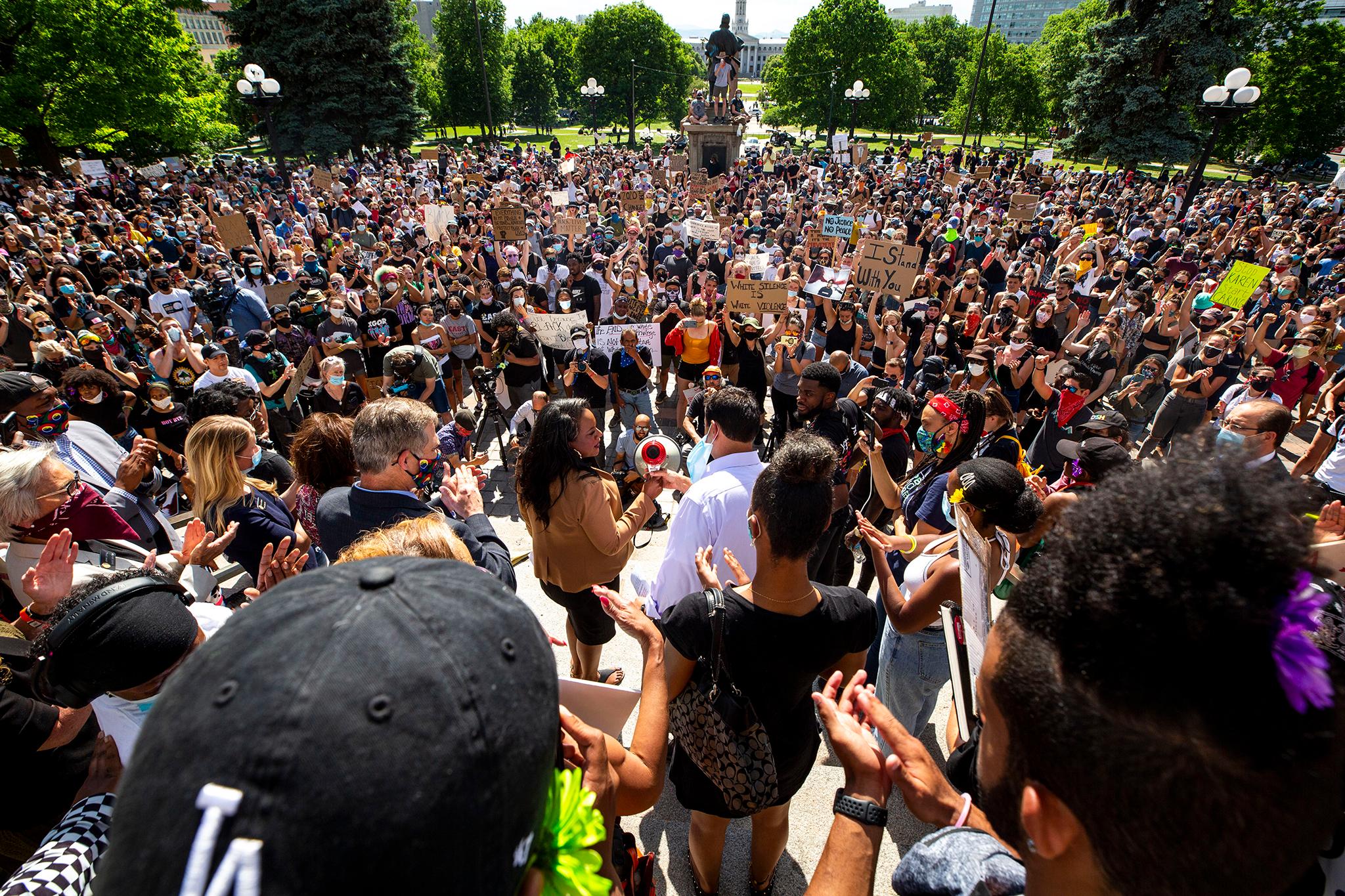
State Rep. Leslie Herod and Senate President Leroy Garcia came to the west steps Tuesday afternoon to announce they will propose legislation Wednesday that would strip immunity from lawsuits from individual law enforcement officers if they engage in misconduct. Currently, taxpayers are on the hook for settlements and judgments after police misconduct, rather than officers, deputies or troopers. A CPR News investigation earlier this year found that Colorado governments have paid out close to $20 million in the past six years in law enforcement shooting cases.
"There are some good officers out there. Some officers are true American heroes, but we have officers too that are well-documented that lack integrity that are abusing their power," Garcia said after the event. "And we share an obligation as a general assembly to address these inequities and challenges."
The bill is also expected to give the state agency that accredits law enforcement officers more latitude to revoke that certification, making it harder for officers with past misconduct to move from department to department after being disciplined or fired.
There is little time left in a legislative session already disrupted and truncated by the coronavirus pandemic, but with the backing of Garcia, and every Senate Democrat, the bill has the potential to move swiftly through a session that will end when a budget is passed.
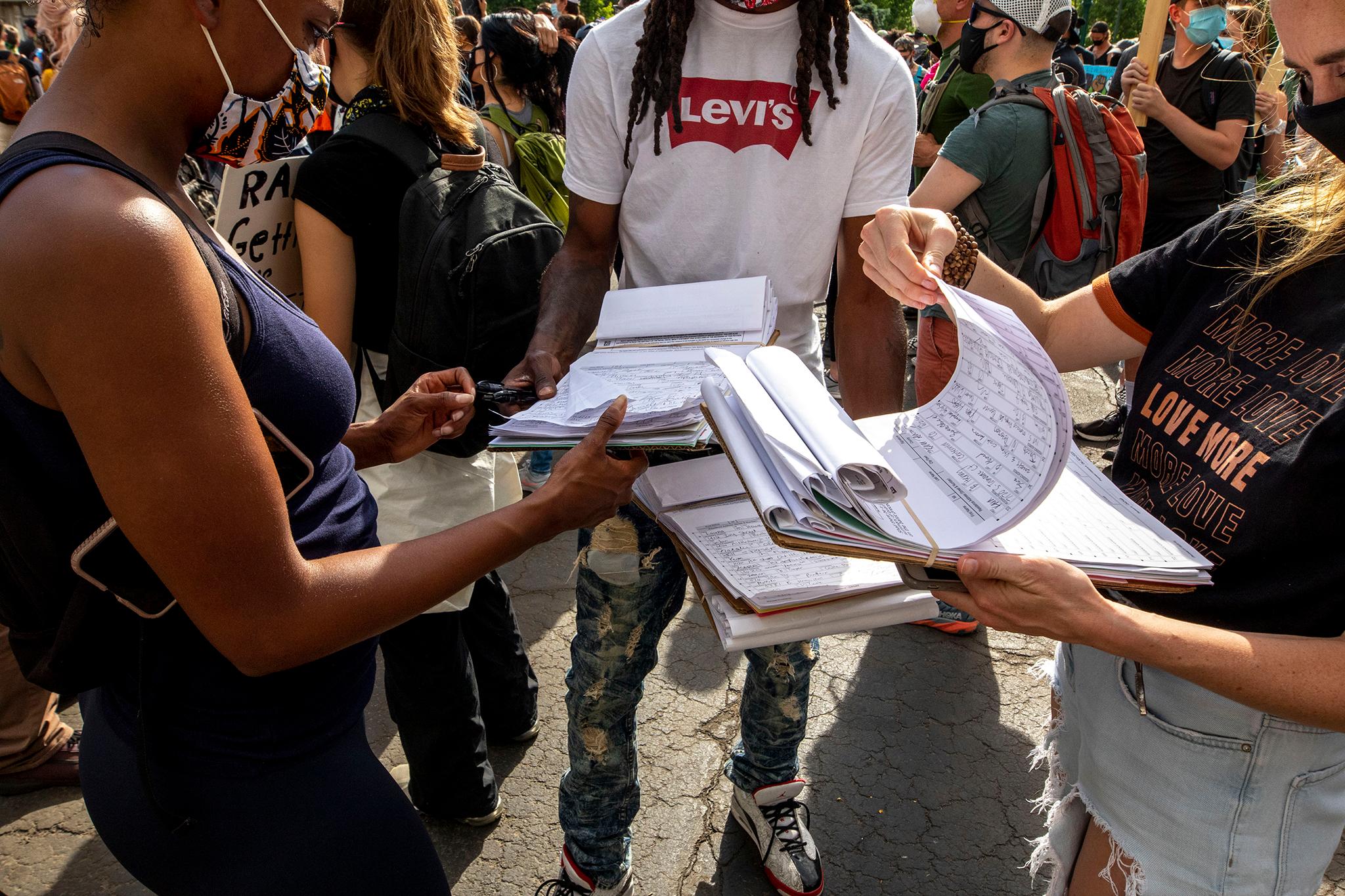
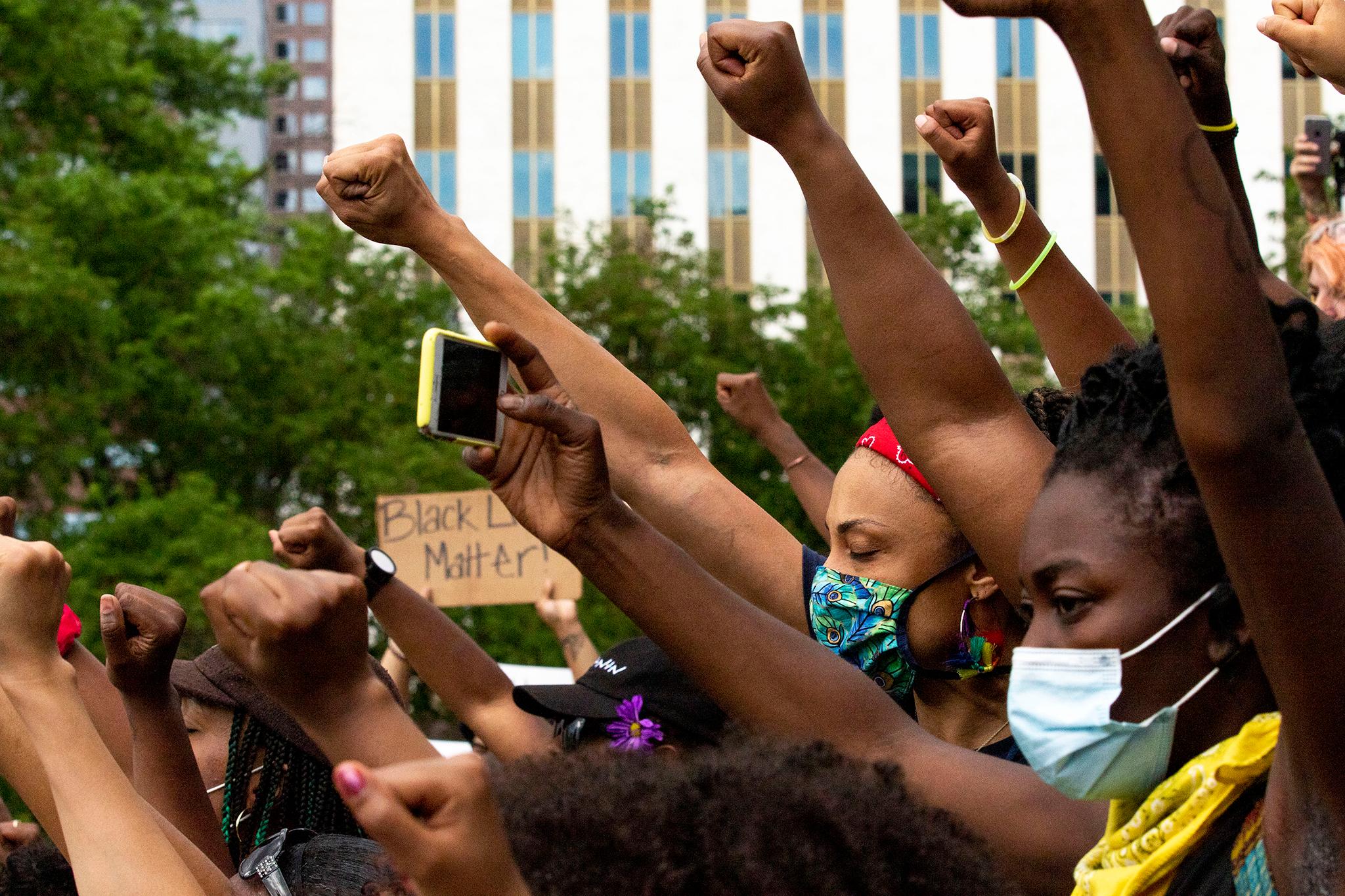
The legislators were joined by Sheneen McClain, whose 23-year-old son Elijah died after an encounter with Aurora Police last August in which he was placed in a "carotid hold" after he resisted questioning after he hadn't committed a crime. The subject of the multi-day protests in Denver and around the nation, Floyd, 46, died while in the custody of Minneapolis Police as one officer kneeled on his neck, a controversial and dangerous technique designed to achieve the same effect - compliance - as the chokehold applied to McClain.
Elijah McClain's death sparked protests, but generated none of the intense, widespread anger and demands for change seen since Floyd was killed as a bystander recorded video of the encounter in Minneapolis. The officers in McClain's case were cleared of criminal liability, and found to have violated no Aurora Police policies, decisions that have been a subtext of the Denver protests of Floyd's death.
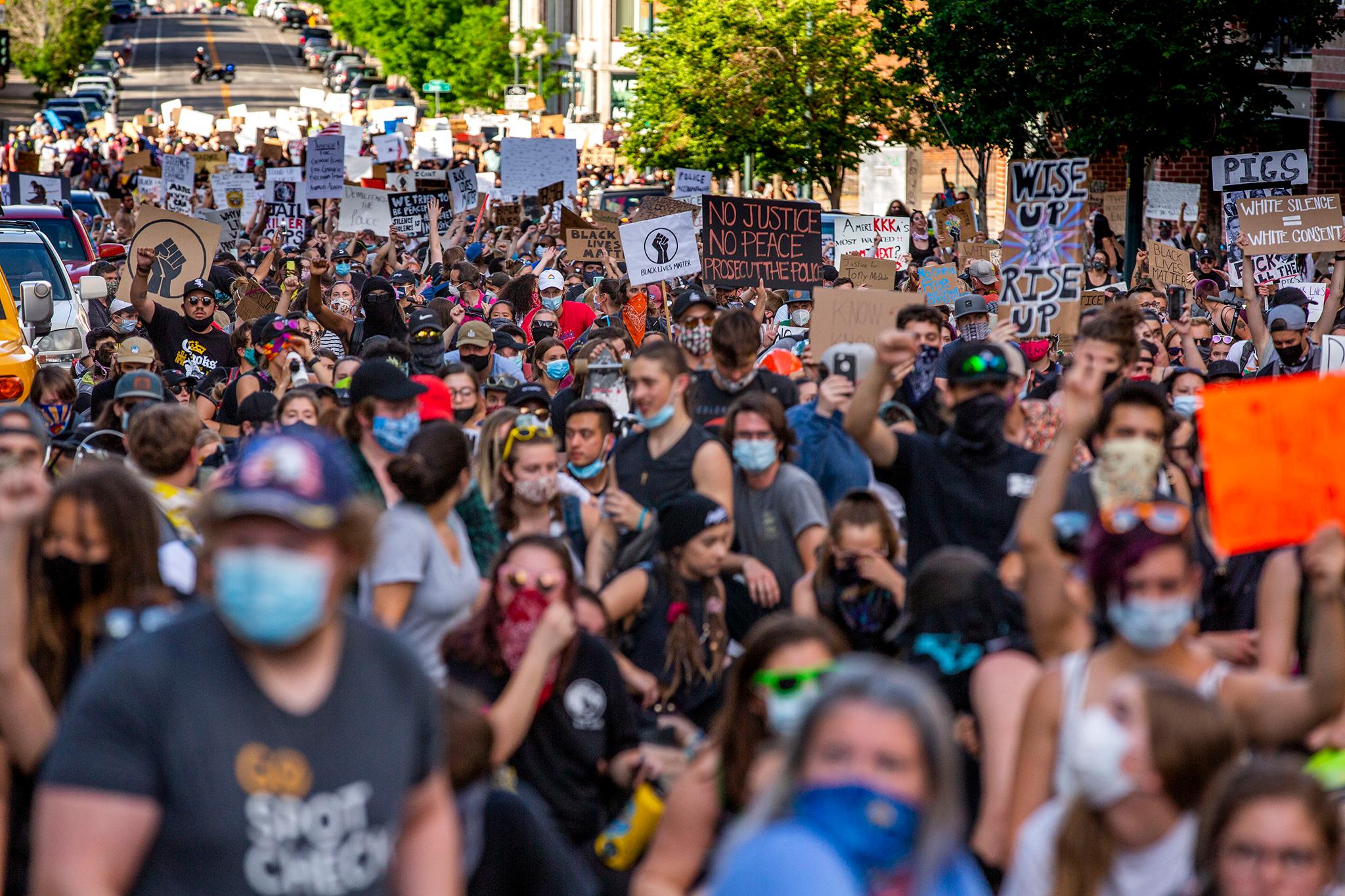
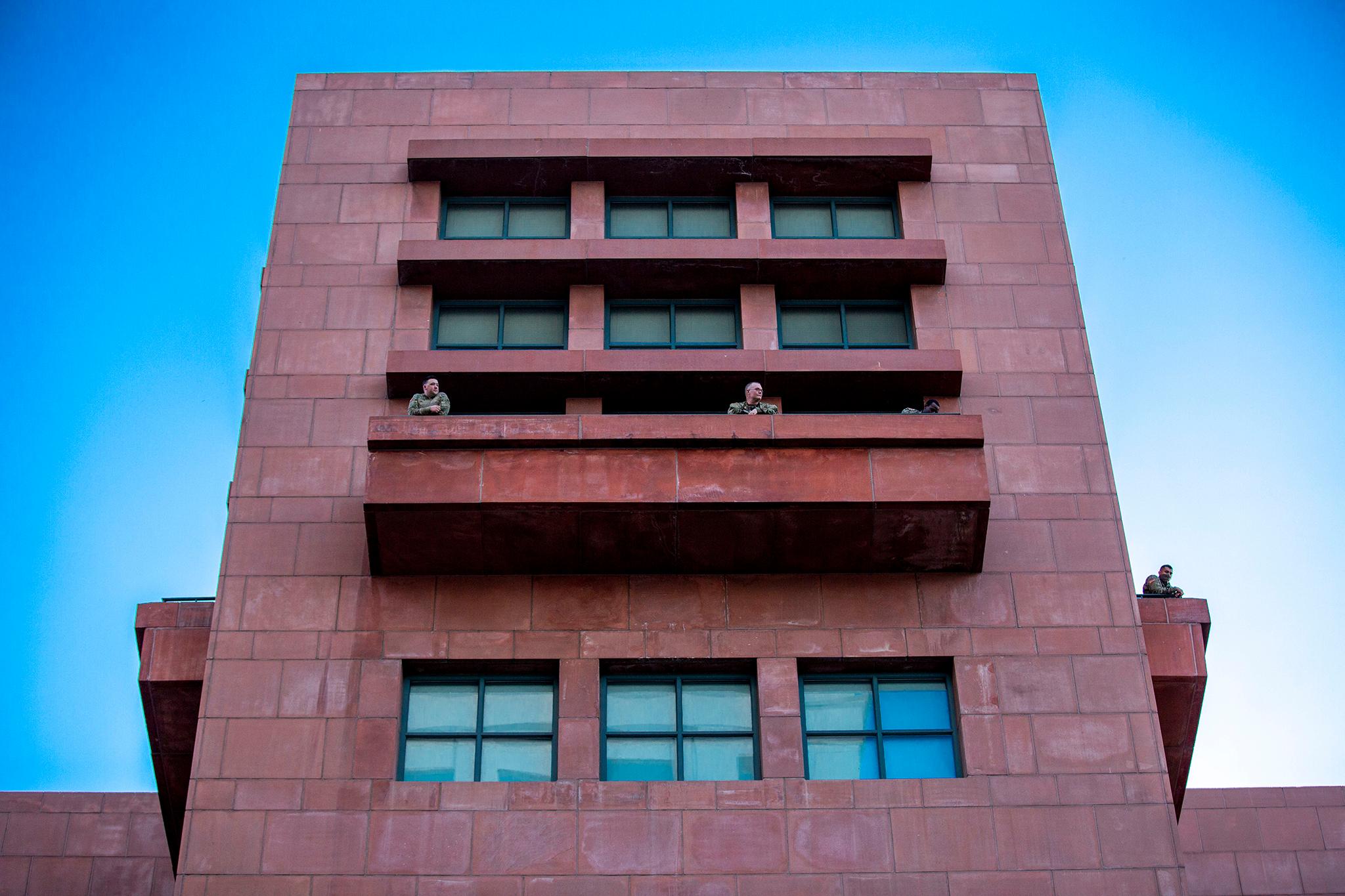
The march traveled from downtown along Champa Street, detouring past the Blair-Caldwell African-American Research Library in the Five Points neighborhood before stopping near Interstate 25.
Antoinette Franklin, of Denver, said she was proud to be part of a peaceful crowd making a difference.
"I feel proud of everybody who has taken the time out of their day, out of their quarantine, to come and be a part of something that is much bigger than just themselves," Franklin said. "One voice may seem like it doesn't matter, but it does. You see everybody coming together peacefully now and you can see change happening."
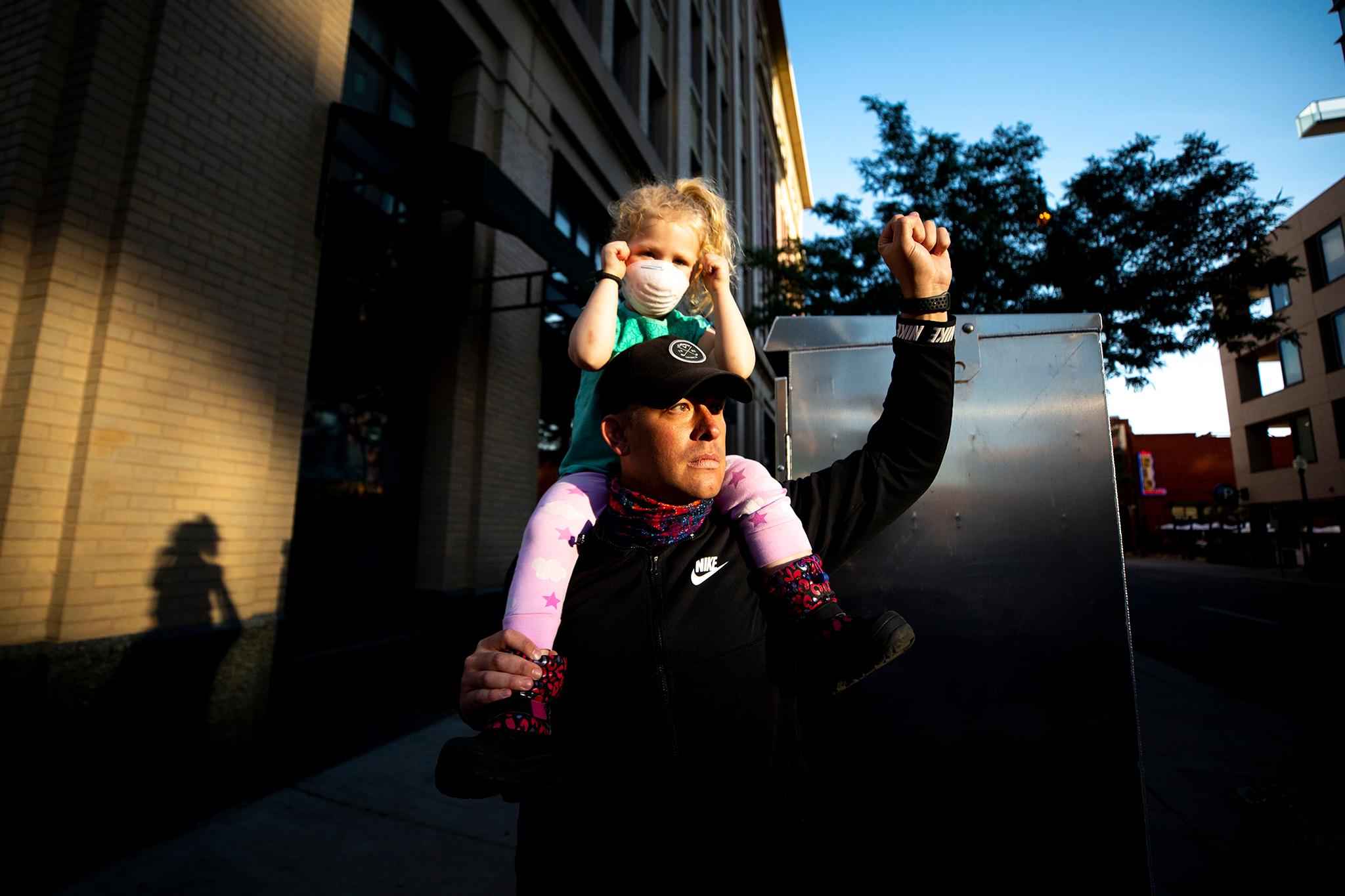
The only tension came when a resident near LoDo unfurled a Trump flag out their window as the march passed on its way back toward the Capitol. The crowd greeted the flag with a profane chant related to the president and the act of reproduction.
Marchers stopped briefly to kneel outside Coors Field - which has been shuttered by the pandemic - then chant "no justice, no peace, no racist police."
Circling downtown, the march returned to where it began, the Capitol, and filled Lincoln Street. A handful of protesters sat in the roadway to block traffic. There were fireworks, making it feel more like a celebration than a protest. Police kept watch nearby, but like Monday night, made no move to disperse the otherwise peaceful crowd after the curfew approached.
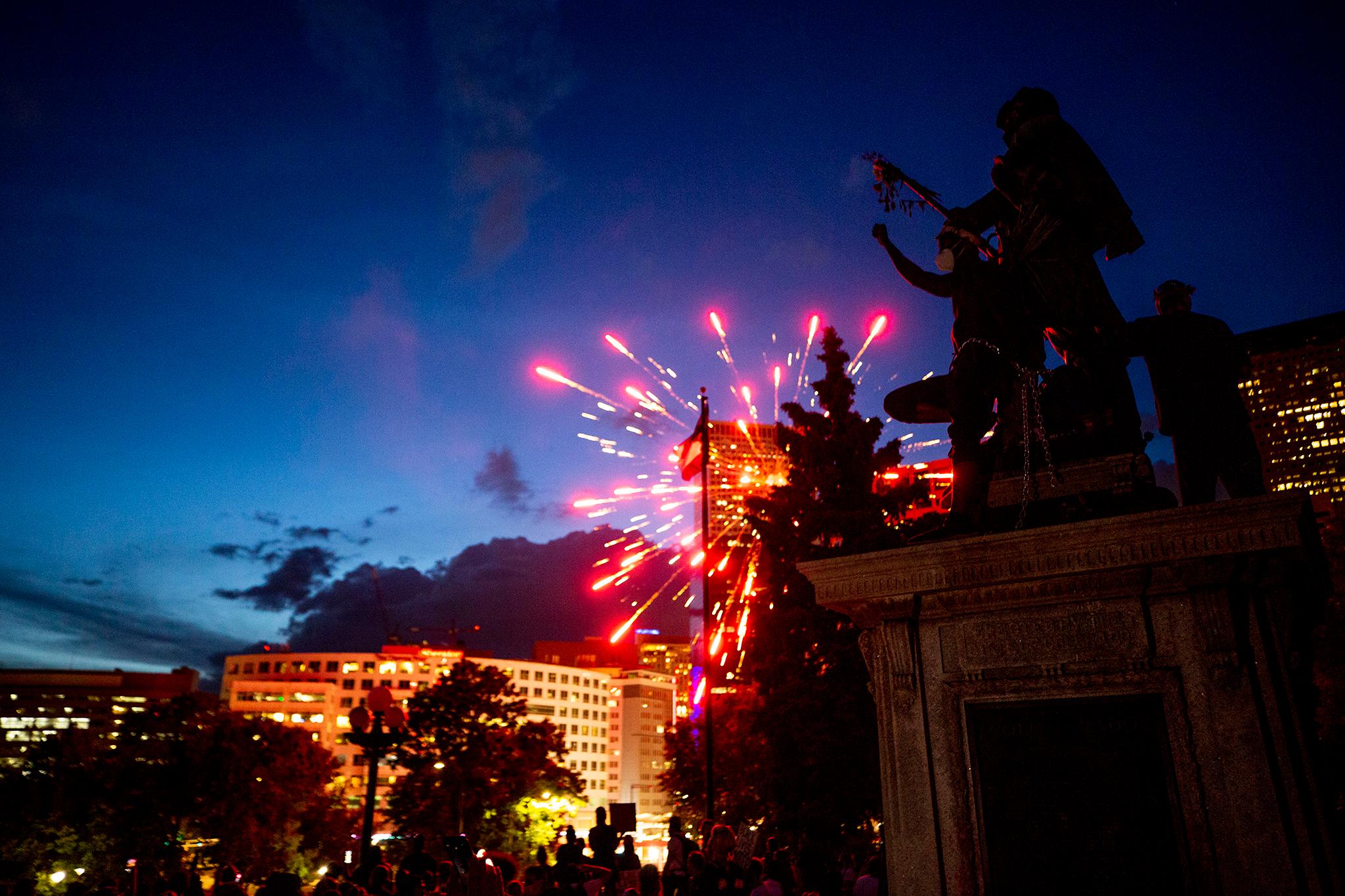
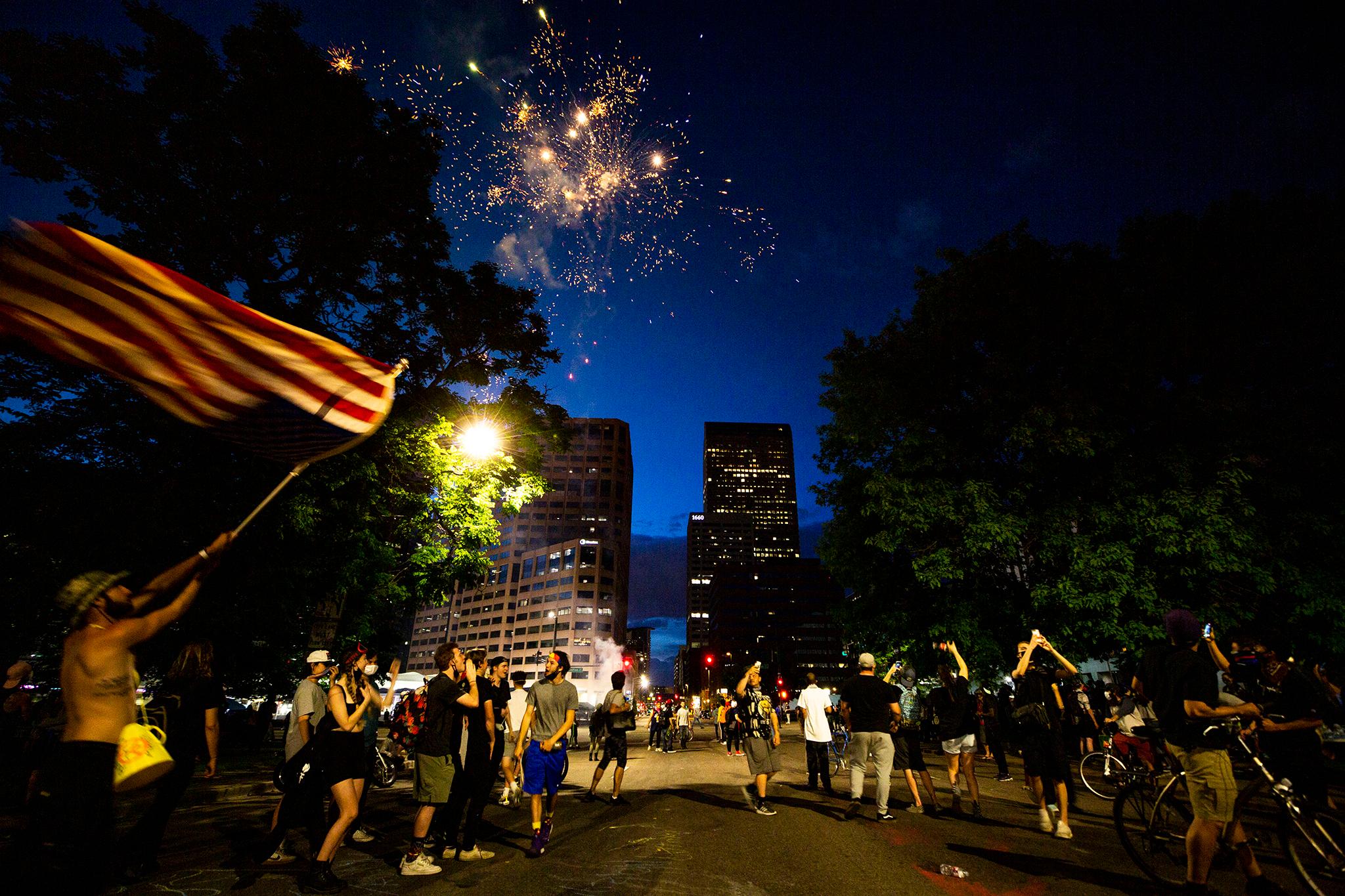
Outside the Capitol at 9 p.m., hundreds of phones buzzed in unison with an alert that the curfew was going into effect. Rather than disperse the crowd, it became a signal to begin a profane chant about what Mayor Michael Hancock could do with his curfew.
At 9:15, they were on the move again, briefly blocking traffic at 20th and Stout near the federal courthouse for nine minutes of silence to honor Floyd, who was pinned beneath the Minneapolis officer's knee for that long before he became non-responsive and died.
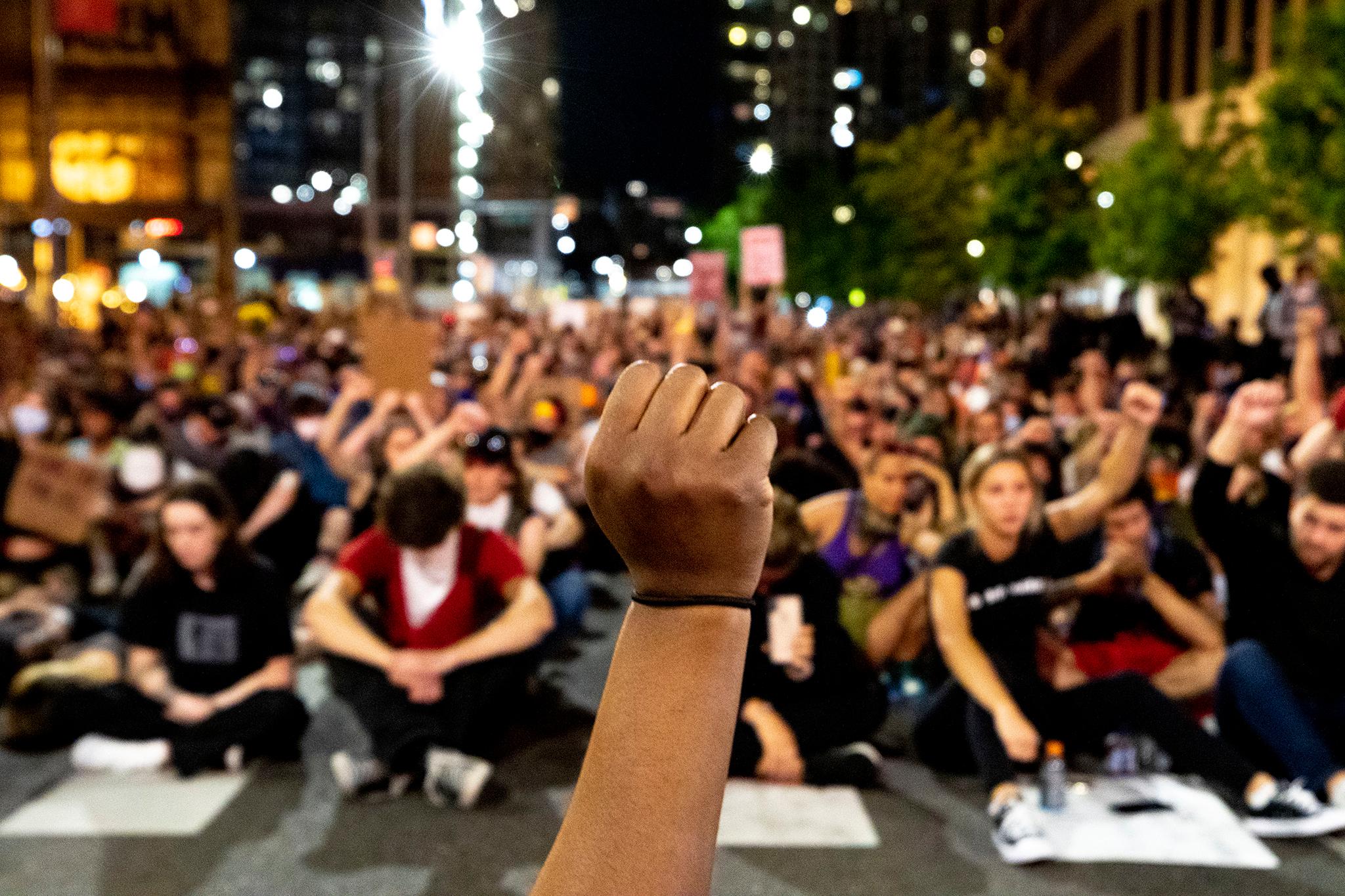
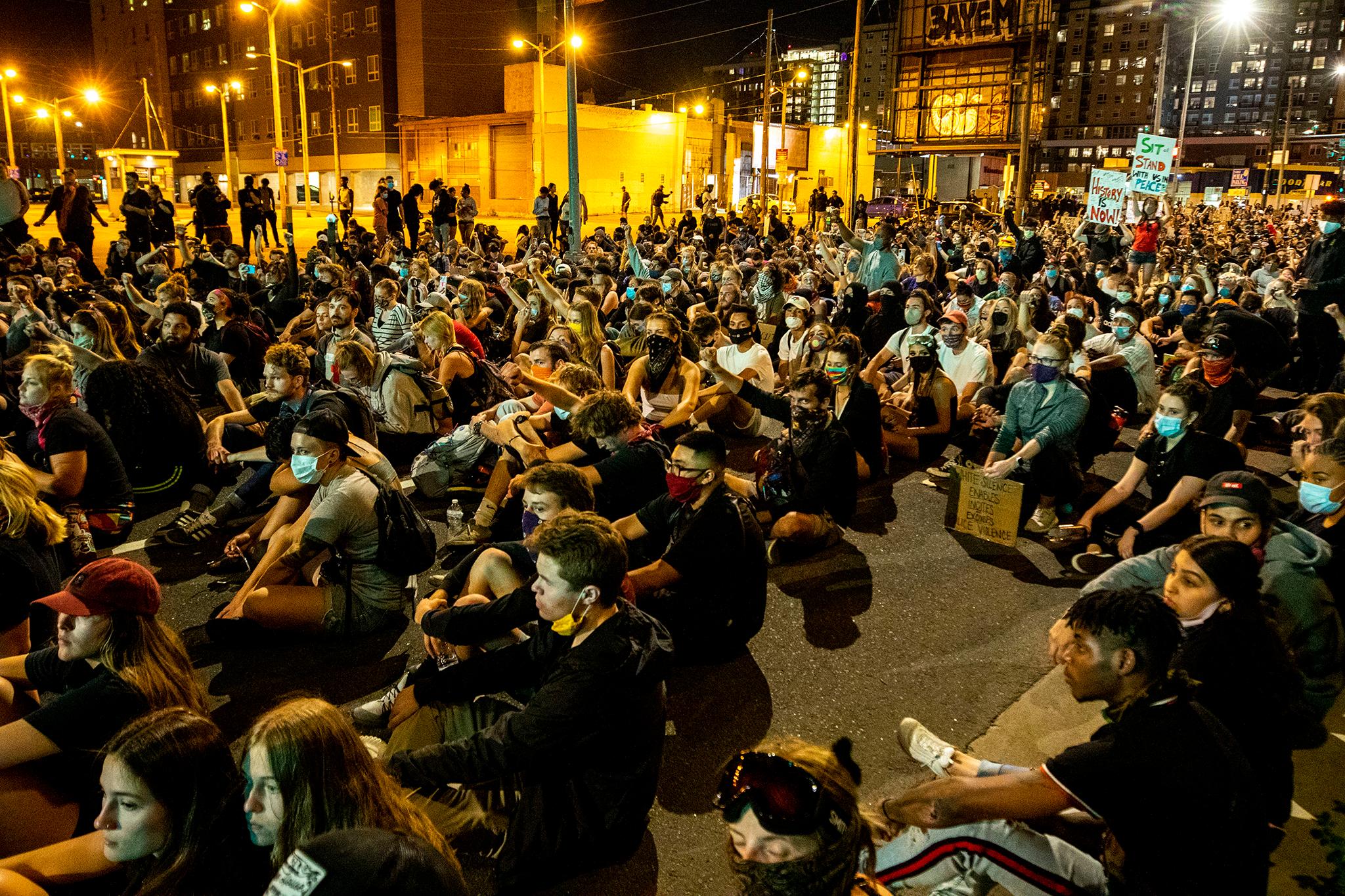
The crowd then began to disperse as they marched back to the area of the Capitol, but a substantial number of people gathered again on the west steps, holding their illuminated cell phones aloft to light up the otherwise dark grounds while again chanting "no justice, no peace."
As Tuesday became Wednesday and more than three hours had passed since curfew, police had not moved against about 200 remaining protesters, who remained defiant, but peaceful. One man chained himself to a statue. But police were still keeping their distance with no indication they were massing to make arrests or drive the remaining people off the Capitol grounds.
A 9News reporter who remained on scene Tweeted that police finally moved in at 1 a.m., firing pepper balls to clear the remaining protesters who were out four hours beyond curfew.
